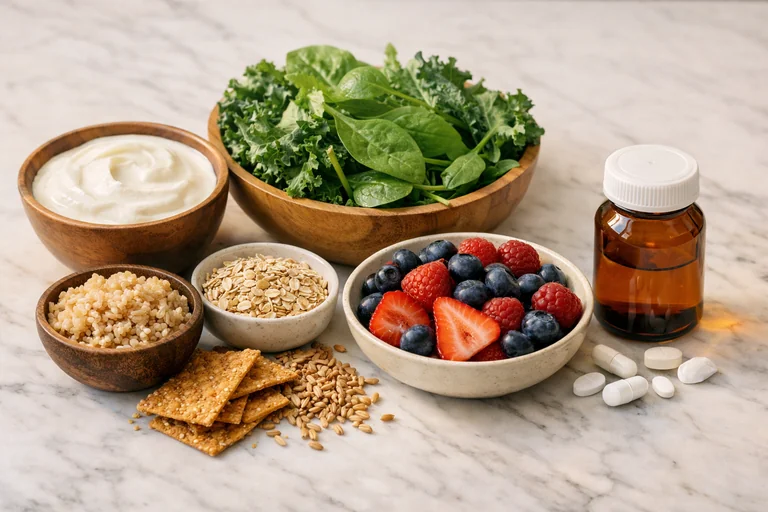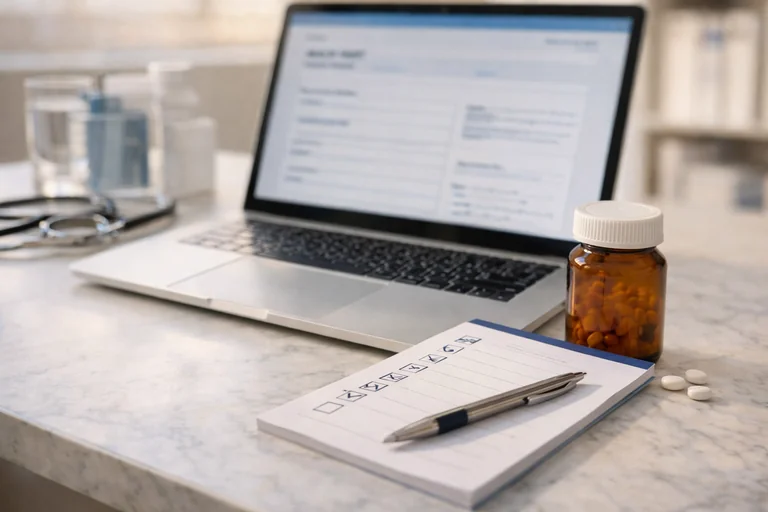A 2 minute assessment to get a personalized mental health or alcohol recovery plan.
Hundreds of clinical research studies have been conducted on the efficacy of ketamine. And many of those studies involved ketamine’s effectiveness at treating depression.
The research is far from over. With each study researchers delve further into how ketamine affects the brain, and they discover new information that suggests ketamine therapy could be highly beneficial for people who suffer from depression.
Research over the last dozen years has been groundbreaking, and the latest studies on ketamine for depression aren’t just verifying the medical benefits. Now that ketamine has proven to be an effective treatment for different types of depression, the research is going deeper to look at optimal dosing, reducing self-harm, online ketamine therapy and more.
Large-Scale Peer-Reviewed Study Looks Specifically at the Efficacy of At-Home Treatments
A study that is set to be published in the Journal of Affective Disorders is proving without a shadow of a doubt that at-home ketamine therapy improves depression symptoms. It’s the largest peer-reviewed study of its kind, which makes the results that much more impressive. One of the biggest takeaways is that the study suggests at-home ketamine therapy may produce the best results for people with treatment-resistant depression and suicidal ideation.
Key Findings
- Focused solely on the use of at-home ketamine therapy.
- The groundbreaking large-scale study had 1,247 participants
- 89% of participants saw an improvement in anxiety and/or depression symptoms.
- 30% of participants were considered to be in remission after four treatments.
- 62% fewer participants had suicidal ideation after four treatments.
- Less than 5% of participants experienced side effects.
- Response rates were better than the rates for IV ketamine therapy, antidepressants and talk therapy
Study Measures the Effectiveness of Ketamine Treatments for Patients With Treatment-Resistant Depression, Suicidal Ideation and Generalized Anxiety Symptoms
A study that was published in September 2022 in the Journal of Clinical Psychiatry backs up the at-home ketamine therapy research in terms of ketamine’s ability to reduce suicidal ideation. It also verifies that while intravenous ketamine treatments are effective, at home treatments using ketamine troches appear to be better at reducing depression symptoms.
Key Findings
- After six weeks of treatment there was a 50% response rate and a 20% remission rate.
- After ten ketamine treatments there was a 72% response rate and a 38% remission rate.
- Intravenous ketamine treatments cut self-harm in half within six weeks.
- Improvements in anxiety and depression symptoms that outperformed antidepressants.
See More Clinical Data From the Study
Repeated Ketamine Treatments Are Effective Without Impairing Cognitive Function
One thing that has been of concern is the long-term effects of repeated ketamine treatments. Patients can experience significant improvements after just one treatment, but research has shown repeated treatments over an extended period produce the best results. Also, maintenance ketamine treatments may be needed.
A new study is putting people’s minds at ease somewhat. The study included 22 participants with treatment resistant depression that received 8-10 ketamine infusions that increased in dosage. Despite the increase, the researchers didn’t find that impaired cognitive performance was an issue.
Key Findings
- After 8-10 treatments depression symptoms were reduced by 47.2%.
- Conducting Montreal Cognitive Assessment (MoCA) showed no evidence of impairment.
- Increasing the dosage may not be necessary to achieve long-term results.
Research Into Non-Psychedelic Ketamine Treatments That Could Expand At-Home Therapy
The biggest misgiving people have about using ketamine therapy is the psychedelic effects. If research proves the efficacy of R-ketamine that may no longer be an issue. R-ketamine (PCN-101) is a non-psychedelic form of ketamine. But it’s unclear if this form of ketamine has the same therapeutic benefits, which is why the research is being conducted.
After conducting an animal study that showed promise, the FDA gave the okay for clinical development of R-ketamine and studies that involve drug-drug interaction. The hope is that if R-ketamine proves to be equally effective without side effects it will expand at-home ketamine therapy.
Key Findings
- R-ketamine produced a fast antidepressant response with limited dissociative effects.
- Early results suggest R-ketamine is just as effective as S-ketamine, the form of ketamine that’s currently used to treat depression.
Find Out What’s Next in This Research
Right now there are hundreds of ketamine clinical studies underway that are expanding the research and our knowledge of how to optimize its use. We’re excited to see what discoveries are on the horizon that will get us closer to making transformative ketamine therapy available to more people.




